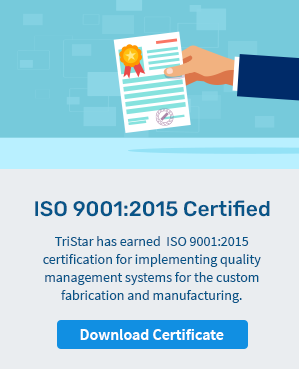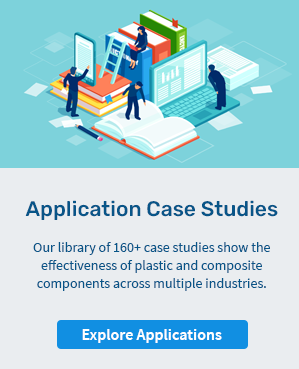
Rulon® AR: Providing Corrosion Resistance in Steel Mill Cooling Systems
Corrosion in steel mill furnaces can lead to costly repairs, safety risks, and operational downtime. When a major manufacturer of specialized furnace equipment faced this issue, they turned to TriStar for an innovative solution. Our team of engineers designed a custom component to address their most pressing problem: the damaging effects of galvanic corrosion between dissimilar metals.
The Inherently Corrosive Nature of River/Lake Water Led to Costly Equipment Failure

The specific challenge involved components made of copper, which are critical to the furnace's heat dissipation system. This system relies on water cooling, often using local river or lake water that tends to be naturally corrosive. The adjoining steel piping and collars further complicated the situation, as galvanic reactions between the copper and steel caused corrosion at the junctions. Repairing or replacing these parts was not only expensive but also posed safety risks for the workers involved.
To overcome this, TriStar engineers developed a custom threaded dielectric bushing designed to eliminate metal-to-metal contact and stop galvanic corrosion in its tracks. This bushing featured opposing threads for a secure fit and had to be made from a material capable of withstanding continuous temperatures of at least 400°F, resist hot water and steam, offer superior dielectric insulation, and remain stable without melting.
Rulon AR - Zero Moisture Absorption and Complete Corrosion Resistance
The solution came in the form of Rulon AR, a modern formulation of the original Rulon A material introduced in 1952. This high-performance material met all the application's demanding requirements. Unlike thermoplastics, Rulon AR doesn’t melt, even in extreme conditions. Its filler material added just enough stiffness for structural integrity while maintaining the conformability needed to create a tight seal in threaded parts.
In addition to excellent dielectric properties, Rulon AR does not absorb moisture and can safely operate at temperatures as high as 550°F. Most importantly, it completely prevents galvanic corrosion between copper and steel, making it a perfect fit for this application.
More Than Just a Solution: Engineering Expertise
This is just one example of the many tough challenges TriStar engineers have solved in steel mills and other demanding environments. If you're facing a challenging problem of your own, don’t hesitate to reach out to our engineering experts for assistance.









